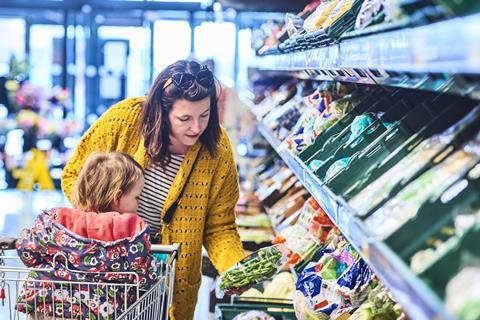
Top story
Grocery price inflation fell for the seventh month in a row to 11% last month as take home grocery growth rose to 9.1%.
Grocery market share data from Kantar showed inflation fell to its lowest rate since July 2022 last month.
Despite this drop, take-home grocery sales over the same period rose by 9.1% compared with last year, up from 7.4% annual growth last month.
A jump in the amount of money spent on offers is also helping to offset the impact of inflation. Tom Steel, strategic insight director at Kantar, commented: “Supermarkets are looking at all the different ways they can deliver value at the tills and while the emphasis for some time has been on everyday low prices, the retailers are starting to get the deal stickers out again.”
Spending on promotions made up over a quarter of all sales in the latest 12 week period at 26.5%, the highest level since June 2022.
Meanwhile branded promotion sales hit their highest rate since January this year, helping the category grow sales by 7.3% across the 12 week period and narrow the gap with own-label lines, which grew by 10.1%.”
In terms of individual retailer performance, Tesco was the leader of the mults with sales up 9.2% over the longer 12 week period, followed by Sainsbury’s at 9.2%.
Asda and Morrisons were up a more modest 2.9% and 2.1% respectively.
The discounters led overall growth, with sales at Aldi up 14.9% and Lidl up 15.2%.
Ocado was up 9.6% in the period, while Waitrose grew 5.3%, Co-op by 3.3% and Iceland 2.8%.
The joint warmest September on record meant people enjoyed summer favourites for a little longer this year. Tom Steel explains: “Sunnier weather last month meant the barbecues stayed out of sheds for another few weeks. Shoppers made the most of the higher than average temperatures, with volume sales of ice cream, burgers and dips shooting up by 27%, 19% and 10% respectively.
“Christmas seemed further away for many with fewer people buying Christmas puddings and seasonal biscuits as volume sales were down by 14% and 29% versus this time last year.”
Over the 12 week period grocery inflation stands at 11.7%, with prices rising fastest in markets such as eggs, sugar confectionery and frozen potato products.
Steel added: “Grocery price inflation is still very high, but shoppers will be relieved to see the rate continuing to fall. For the first time since last year, the prices of some staple foods are now dropping and that’s helping to bring down the wider inflation rate. Dairy was one of the categories where costs really shot up last autumn but the average price paid for a 250g pack of butter is now 16 pence less than 12 months ago.”
Morning update
Overall retail sales growth slowed in September as inflation and the cost of living hit consumer spending.
The BRC-KPMG Retail Sales Monitor for September found that UK total retail sales increased by 2.7% during the month, against a growth of 2.2% in September 2022.
This was in line with the 3-month average growth of 2.7% and below the 12-month average growth of 4.2%.
Food sales increased 7.4% on a total basis over the three months to September, which was below the 12-month average growth of 8.4%.
Non-food sales decreased 1.2% over the three-months. For the month of September, non-food was in decline year-on-year.
Over the three months to September, in-store non-food sales increased 0.3%, while online non-food sales decreased by 3.6% in September.
Helen Dickinson, CEO of the BRC, said: “Sales growth in September slowed as the high cost of living continues to bear down on households. Big ticket items such as furniture and electricals performed poorly as consumers limited spending in the face of higher housing, rental and fuel costs. The Indian summer also meant sales of autumnal clothing, knitwear and coats, have yet to materialise.
“With sales volumes down, growth has been artificially boosted by high inflation over the last two years. As inflation eases, so too will longer-term sales growth prospects. The coming months are crucial for retailers as they enter the “Golden Quarter” and they’re investing heavily to support customers and bring prices down. However, such efforts are challenged by the £400m increase in business rates expected next year. The Chancellor should scrap the rates rise in his upcoming Budget and enable retailers to deliver more value for customers at such a critical time for the economy.”
Paul Martin, UK Head of Retail, KPMG, added: “Retail sales continued to limp along, with growth up just 2.7% despite inflation falling in September.
“Food and drink, and health and beauty continue to be the strongest performing categories on the high street, whilst a growing number of categories including clothing, fell into negative territory over September as the unseasonal warm weather delayed trips to the shops to stock up on winter wardrobe purchases. Online sales growth continued to fall, with just health, beauty and jewellery recording positive sales growth. September signals the 26th month of continuous online sales decline and retailers will be hoping for a strong Black Friday in order to turn the tide.
“With the warmer weather delaying household heating being switched on, positive news around falling inflation and a hold on rising interest rates, consumers will hopefully be feeling a bit more confident as thoughts turn to Christmas shopping.
“After years of battling challenges, the resilience of the retail sector has been dented and we are starting to see the gap between the strongest and the weakest on the high street widen. The fight for Christmas shoppers will be fierce this year, with promotions likely to be earlier and abundant in a bid to loosen tight household purse strings. Consumers will continue to seek out good deals, with price driving purchasing decisions. This is likely to be one of the most important golden quarters that we have seen in years, as for some in the sector, it could very much determine their future.”
Sarah Bradbury, CEO, IGD, speaking on food sector performance, commented: “Food and drink sales grew in September, continuing the positive momentum seen in August. Despite falling consistently for several months, inflation is still significantly higher than recent historical standards, and volumes remain down year-on-year. Retailers are doing what they can to limit the impact of inflation on shoppers, with many announcing further rounds of price cuts and price freezes.
“Shopper confidence reached its highest level since December 2021 in September, as fewer shoppers felt they would be financially worse off in the year ahead (35% vs 38% last month and 60% in Sep’22). Trust in the food industry around price, availability and quality rose as well, reflecting a general uplift in mood with warm weather and falling inflation. However, 68% of shoppers still expect food prices to rise in the next 12 months – with 16% expecting them to become much more expensive.”
Greencore Group has upgraded full year profit expectations despite growth slowing in its fourth quarter as it lapped a strong comparative period.
Group pro-forma revenue was 4% up year on year in Q4, with full year group pro-forma revenue growth of 13%.
Food to go was up 3% pro-forma in the quarter and 10% for the year, while its other convenience categories posted 6% organic growth for the quarter and 22% for the year.
As a result of continued growth, the group anticipates adjusted operating profit will be ahead of current market expectations and in a range of approximately £74m-£76m.
Net Debt (excluding lease liabilities) is estimated to be approximately £155m (FY22: £180m) at year end, after approximately £36m capital expenditure and completion of a further share buyback.
In total, the group has returned £35m to shareholders since May 2022. It is intended that a further £15m will be returned to shareholders in due course in the form of an additional share buyback programme and as part of the wider commitment to return £50m to shareholders by May 2024.
CEO Dalton Philips commented: “The Greencore team has delivered a strong second half performance in what was a difficult seasonal comparative period and against the backdrop of inflation and a challenging consumer environment. We continue to drive operational improvements across the business underpinned by our commitment to quality and customer service.
“While macro-economic uncertainty remains, we are pleased with the expected FY23 outcome and are committed to driving an improved financial performance in the period ahead.”
Profit growth returns with resilient revenue performance
Treatt, the manufacturer of natural extracts and ingredients, has returned to profitable growth amid a “resilient” performance.
In a trading update for the year ended 30 September 2023 it said revenue growth was 5% (3% in constant currency) to £147m, despite industry de-stocking headwinds.
Sales price increases were successfully implemented to offset raw material price inflation reflecting value-add nature of Treatt’s product portfolio.
Core categories, which include citrus, synthetic aromas and herb spices & florals have grown by 1% to £98m.
Premium categories, which include tea, health & wellness, fruit & vegetables, are in line with the prior year at 33m.
New markets, which include coffee, China and Treattzest citrus, have grown by 60% to £16m.
The board expects to report profit before tax and exceptional items for the full year of £17m, which is 11% ahead of prior year, driven by strong cost discipline and other self-help measures allowing more sales growth to convert to profit.
The Group ended the year with net debt of c.£10.5m (down from £22.4m). With the transition to the new site now complete, capital expenditure has returned to normalised levels.
Daemmon Reeve, CEO of Treatt, commented: “We delivered positive growth in sales and profit for the year, reflecting the significant price increase programme and ongoing resilience in our beverage end markets. Revenues in the second half of the year were impacted by certain customers reducing inventories in response to interest rate rises.
“However, we are seeing some early signs of a reversal of this temporary destocking effect, and have also been able to mitigate the effect of this impact with strong cost discipline and other self- help measures. With our unique value-add products, in conjunction with the new site transition now complete, we are confident in Treatt’s long-term prospects.”
Yesterday in the City
The FTSE 100 started the week flat at 7,492.2pts.
Fallers included THG, down 6.1% to 65.3p, Marks & Spencer, down 4.1% to 221p, WH Smith, down 2.8% to 1,242p, Nichols, down 2% to 882p and B&M European Value Retail, down 1.8% to 567p.
Risers included Kerry Group, up 2.8% to 76.5p, Glanbia, up 2.2% to €14.70, Imperial Brands, up 2% to 1,703p, Coca-Cola Europacific Partners, up 1.9% to €55.00 and McBride, up 1.8% to 37.7p.




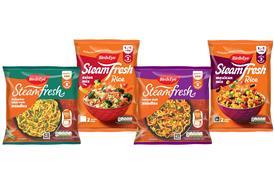


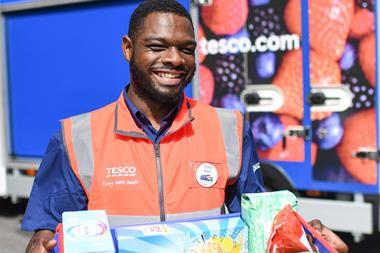
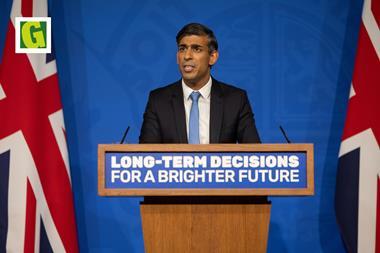

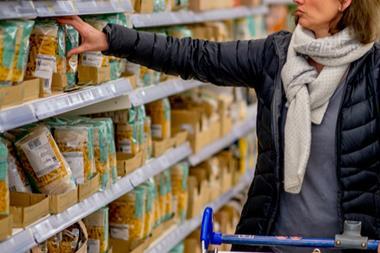
![snakesandladders[61] (1)](https://dmrqkbkq8el9i.cloudfront.net/Pictures/380x253/5/0/2/304502_snakesandladders611_743469_crop.jpg)
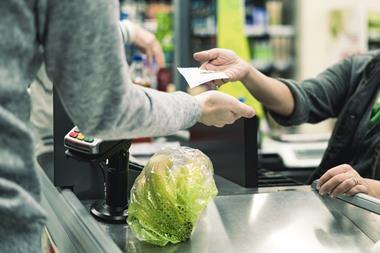
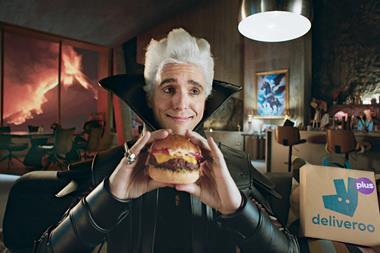

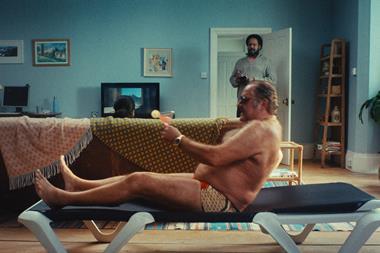
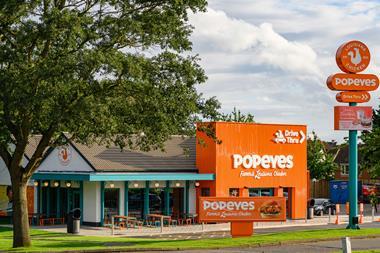


No comments yet